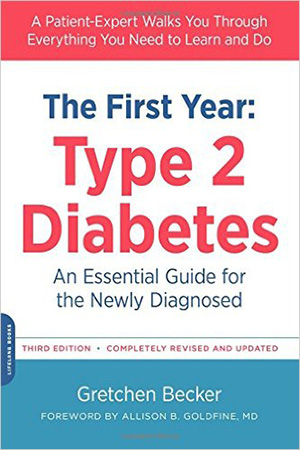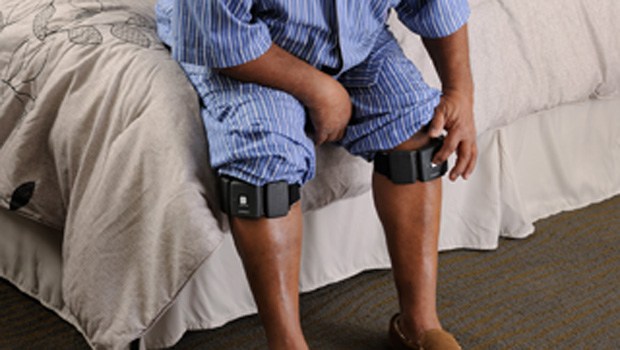Diabetes Is Not Your Fault


In this edited excerpt from The First Year: Type 2 Diabetes – An Essential Guide for the Newly Diagnosed, Gretchen Becker unpacks the emotional minefield that comes with a diabetes diagnosis.
You’ve just been diagnosed with Type 2 diabetes. If you’re like most people, you’re probably in a state of shock.
When you got your diagnosis, your doctor probably told you a lot of things about diets and drugs and insulin and glucose and carbohydrates and blood tests and avoiding this and doing that, and you probably came out of the office with your head spinning, not remembering much of what the doctor said.
Don’t worry, you’re not alone. Most people feel that way.
If no one in your family ever had diabetes, and especially if you’re thin and thought diabetes only happened to fat people, you’re probably especially puzzled. “What did I do wrong? Why is this happening to me?”
Sometimes a diagnosis comes like a thunderbolt on a sunny day. Sophie C. consulted a doctor about a toenail fungus, and he drew some blood for routine tests. “Next day the phone rang, and my doctor informed me quite bluntly that I was diabetic,” she said. “Talk about a slap in the face! I was scared out of my mind. There must be some mistake here. I wasn’t blind; my feet weren’t gangrenous. No family history of the disease, no warning signs (that I knew of at the time), not a clue.”
Or maybe you were expecting a diagnosis someday. You’ve got relatives with diabetes: your grandmother had diabetes and died from gangrene in her foot. Your father got it when he was 65 and died from a heart attack a few years later. If you’re also overweight, maybe you figured someday you’d get diabetes yourself. But you probably figured “someday” would be far in the future, when you were old. Not today. Not now.
[adrotate banner=”29″]
A lot of people may tell you that if only you’d eaten less sugar, or eaten less fat, or exercised more, or eaten more fiber, or smoked less, or done none of the things that 95 percent of the American population does, you wouldn’t have gotten diabetes. Especially if you’re overweight, because most people with Type 2 diabetes have a problem with weight, people will suggest that it’s your fault that you got diabetes because you let yourself get fat.
There’s so much to learn about diabetes, but you can’t learn it all at once. Trying to accept the diagnosis is enough for your first day. Here’s what you should remember as you deal with this: getting diabetes is not your fault.
In order to get diabetes, you need to have diabetes genes. One of the leading causes of your diabetes is a poor choice of ancestors. People without those genes can spend their lives lying around eating chips and watching TV. They’ll probably get fat, but they won’t get diabetes.
Having the genes, however, isn’t enough to give you the disease. Even if you have diabetes genes, if you live in an environment where you don’t get a lot to eat and you do hard physical labor all day, you still probably won’t get diabetes. Some people think the diabetes genes are thrifty genes that make your body use its food more efficiently, meaning that you can gain more weight with less food. In times of famine, this comes in handy, and when food was extremely scarce, your ancestors probably fared better and had more children than other families who didn’t have those genes.
But when your family moved to a different country or into a different type of lifestyle where food was plentiful and machines did all the work, those diabetes genes weren’t so handy after all. When food is limited, it doesn’t matter how hungry you are. You can’t eat enough. When food is readily available, having a good appetite can be a disaster.
Having diabetes genes may affect the appetite. Alex E. described the time someone brought some scrumptious pastries to work. A thin person walked in, looked at the pastries, and said, “Oh my, those look good. I wish I were hungry so I could try one.” Alex was flabbergasted; he was hungry all the time and thought everyone else was too. Only after he learned to control his blood sugar levels did his hunger abate, and he learned what normal hunger is like.
Some people find that they get ravenously hungry when their blood sugar is fluctuating rapidly. You may have had poor blood sugar control for years before you were diagnosed with diabetes. This means that after every meal, your blood sugar went abnormally high. Then it came down again. This may have triggered intense hunger, which would make you eat again. Then the roller coaster would repeat. No wonder you put on weight.
So it may have been those diabetes genes that made you hungry. The hunger made you eat. The thrifty genes were especially efficient in turning that food into fat. And the fat made it harder for you to exercise. So you had another snack instead.
I’ve probably already told you more about diabetes than you wanted to know right away. But for now, just remember this: to get diabetes, you need to have diabetes genes. There’s nothing you can do to change your genes.
Your diabetes is not your fault. What matters now is what you do about it.
If you would like to purchase The First Year: Type 2 Diabetes – An Essential Guide for the Newly Diagnosed, you can go to http://www.indiebound.org/book/9780738218601 or http://www.amazon.com/The-First-Year-Essential-Diagnosed/dp/073821860X.
Want more news on Type 2 diabetes? Subscribe to our newsletter here.




